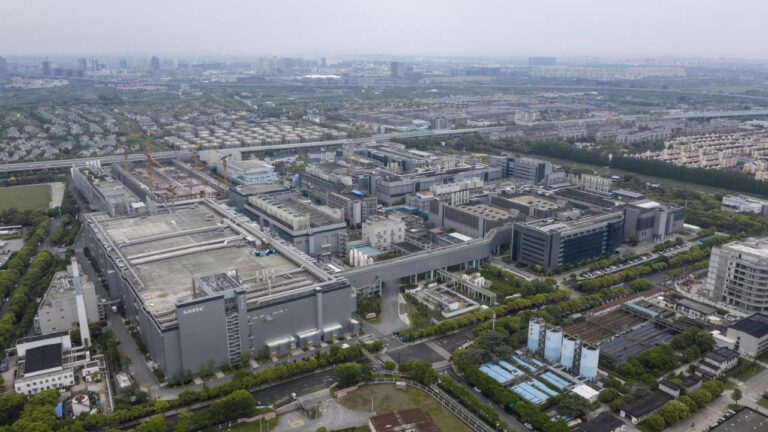U.S. President Joe Biden’s administration expressed growing concern on Wednesday about significant global ripple effects caused by excess industrial capacity in China.
Under Secretary of State for International Affairs Jay Shambaugh noted that addressing these challenges may require defensive measures to protect businesses and workers, and that traditional trade control tools may not be enough.
“Addressing these challenges may require taking defensive measures to protect businesses and workers, and traditional trade enforcement tools may not be enough. Mitigating the impact of China’s excess capacity may require more creative approaches. Defending against excess capacity and dumping is clearly not protectionist or anti-trade, but an attempt to protect businesses and workers from distortions in other countries’ economies,” he said.
Shambaugh stressed that the United States, along with allies and partners in developing and developed countries, shares the common goal of addressing Chinese policies that are negatively impacting their businesses, workers, and economic resilience.
But he also expressed hope that China would recognize the growing concerns among its major trading partners and work together to address these issues.
He suggested that China could take steps such as increasing consumption, improving support services and cutting harmful and wasteful subsidies that would be in its own interest and help ease tensions.
Shambaugh added that while each country has its own concerns and needs, the underlying reasons for these actions are undeniable: “As G7 leaders and finance ministers have said, China’s excess capacity undermines the resilience and security of our workers, industries, and economies. The United States will act, and we will not be alone,” he asserted.
The United States is not alone in addressing the negative impacts of China’s non-market practices, with the EU, Turkey, Mexico, Chile, Brazil and India also taking recent action.
In April, U.S. Treasury Secretary Janet Yellen and her Chinese counterpart He Lifeng concluded a two-day meeting in Guangzhou in which the United States and China agreed to hold an “intensive exchange of views on balanced growth.”
The United States has taken steps, both through legislation and executive orders, to reduce reliance on certain Chinese technologies and strengthen domestic manufacturing capabilities, and the White House and many in Congress view these measures as essential to protecting national security.
(Provided by agency)
Under Secretary of State for International Affairs Jay Shambaugh noted that addressing these challenges may require defensive measures to protect businesses and workers, and that traditional trade control tools may not be enough.
“Addressing these challenges may require taking defensive measures to protect businesses and workers, and traditional trade enforcement tools may not be enough. Mitigating the impact of China’s excess capacity may require more creative approaches. Defending against excess capacity and dumping is clearly not protectionist or anti-trade, but an attempt to protect businesses and workers from distortions in other countries’ economies,” he said.
Shambaugh stressed that the United States, along with allies and partners in developing and developed countries, shares the common goal of addressing Chinese policies that are negatively impacting their businesses, workers, and economic resilience.
But he also expressed hope that China would recognize the growing concerns among its major trading partners and work together to address these issues.
He suggested that China could take steps such as increasing consumption, improving support services and cutting harmful and wasteful subsidies that would be in its own interest and help ease tensions.
Shambaugh added that while each country has its own concerns and needs, the underlying reasons for these actions are undeniable: “As G7 leaders and finance ministers have said, China’s excess capacity undermines the resilience and security of our workers, industries, and economies. The United States will act, and we will not be alone,” he asserted.
The United States is not alone in addressing the negative impacts of China’s non-market practices, with the EU, Turkey, Mexico, Chile, Brazil and India also taking recent action.
In April, U.S. Treasury Secretary Janet Yellen and her Chinese counterpart He Lifeng concluded a two-day meeting in Guangzhou in which the United States and China agreed to hold an “intensive exchange of views on balanced growth.”
The United States has taken steps, both through legislation and executive orders, to reduce reliance on certain Chinese technologies and strengthen domestic manufacturing capabilities, and the White House and many in Congress view these measures as essential to protecting national security.
(Provided by agency)

